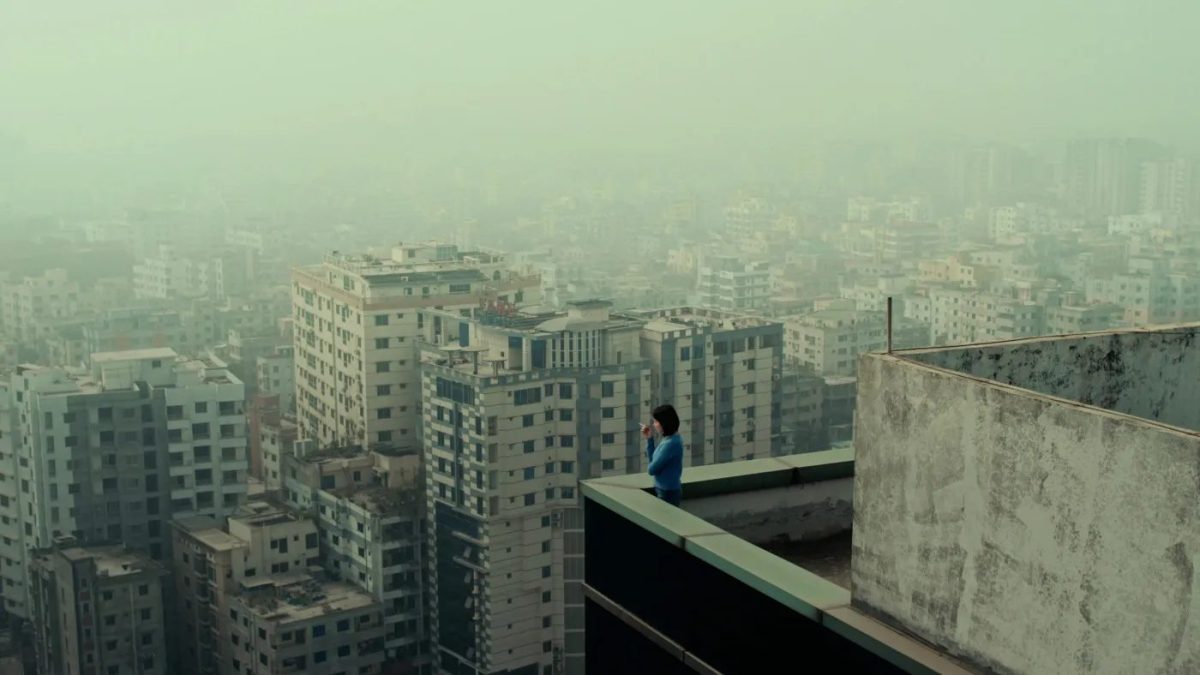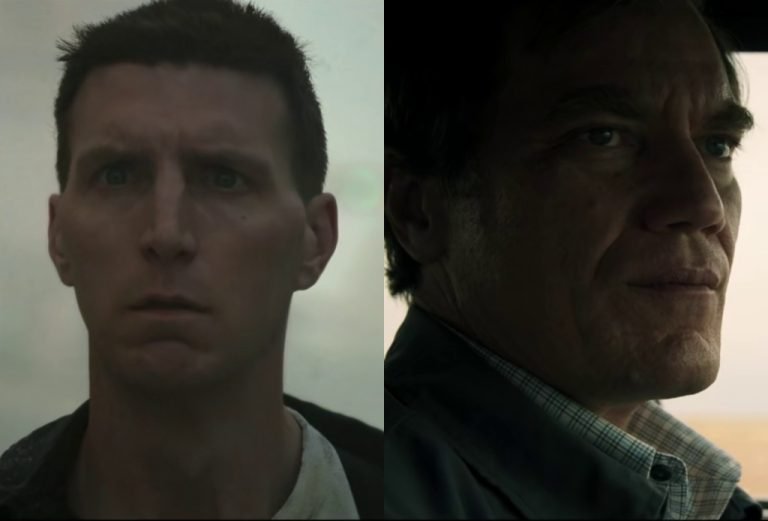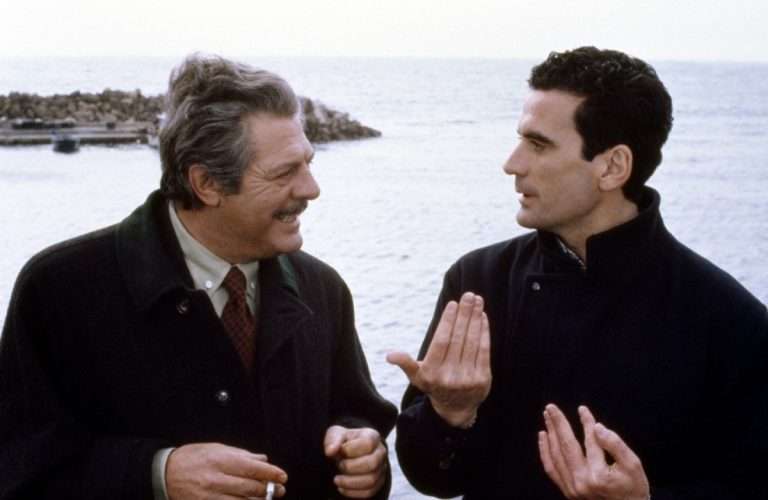In Mahde Hasan’s feature debut, “Sand City,” a tight, clipped psychosis of disaffection rips through its atmosphere. There’s a stifling thrust cities exert as Dhaka does in the film. Where’s the release? Mauled by a city’s pummelling of daily routines, how do you inch towards a smidgen of fresh possibility? A faith in transcendence is snipped by the brutal drudgery synonymous with scratching out a life of dignity. How do you endure with grace when battered by daily banality?
“Sand City” spins around two characters. Emma (Victoria Chakma), a woman from an ethnic minority population, exits her office only to discover slurs scrawled on her bike. It happens on a daily basis. The guard claims he hasn’t a clue who’s behind it. Rather, he redirects insinuations at her, implying: why is it that only she is targeted? She must be doing something that attracts a particular kind of image. At work, Emma is mostly disconnected. She’s seen as an outsider, an anomaly.
The other character is Hasan (Mostafa Monwar), who slaves away at a glass plant with a gradually swelling plot of making his own. He collects several materials, including silica sand, and stores them at home. Emma also hauls off sand for her cat litter. Sand binds the two strangers. She feels edged out in most spaces, receding thereby to her own little corner. There’s no comfort she receives or warmth from kindred others. He’s biding his time, rosy-eyed about the big, brilliant future his project’s success can bring him.
Hasan orchestrates the city-space’s discombobulating effects with precision and austerity. Smoggy landscapes accentuate a deep-set sense of doom and collapse. There’s despair and disillusionment, but it’s purposefully muted. The film drives the kind of morass that seems inescapable, binding on all fronts. Dream as you may; turning the tide is futile, crashing past any mild fluttering of the heart.
Hasan is terrifically confident in handling silences. Long wordless stretches dominate much of the film, a sandbox for you to decipher and project what characters may be feeling at any given point. There’s a distance, a chasm in place between Hasan and Emma, though a few interstices come up sometimes. But what’s felt more keenly is people being strung apart, socio-economic vectors firmly in place.
It’s a cold hollowness that creeps up on individuals. They have dreams which they pursue tenderly, secretly. Hope is so delicate it might shatter, should they recklessly share, open up their hearts. Giombini’s sharply sculpted framing prises out the city and its deadening blow. It’s a stark, alienating atmosphere we are slowly dipped into.
Hasan has no interest in setting up a conventional structure, with easily discernible narrative beats. Instead, he and Giombini imbue “Sand City” with a moodier drift. The blue glowing nights draping over Emma are as striking as evocations of the netherworld in the wasteyards Hasan scavenges through.

Characters don’t navigate the city as much as they are stuck within fixed routes. It’s a stasis that chews into the fibre of their lives. They don’t know how to find their footing if they take a plunge. Hasan does fling himself out there more demonstratively. However, their emotional, psychological isolation gnaws like an open wound. Amidst a space crunch, individuals are severed from any form of affectionate intimacy. The daily struggle for sustenance might not be the same for all. Some, like Emma, occupy a more privileged status.
But fulfilment remains elusive. People wander, aching for some anchorage that’s also affirming. Emma is waiting for visa issues to get sorted, so she can fly out of the country. Rarely do we witness the characters sharing a meaningful, grounding bond with others. Both Emma and Hasan are hemmed in. The latter is hopeful about his big project. But the city’s ruthlessness soon rams into him. To leap at salvation of some kind is exposed bleakly, rudely as a sorry quest. The promise of a renewed future stays suspended.
Mahde Hasan bends the film into a visually stunning drama. Most of the undercurrents are riven into Oronnok Prithibi’s sound design, which unleash vividly seething sensations in both crucial moments, like a heightened, shocked discovery, and regular, mundane rhythms. “Sand City” splays grimness into a vacuum that nags both its characters. Each yearns and jostles with the city’s grind. How much will they yield to it? They have to perennially deal with the interplay between resignation and resistance.
The latter is most terrifying, but the final choice, they hope, will make a difference. The director stitches in jolting, disquieting revelations, aided by Prithibi’s piercing, bracing sound design. The clang of construction noise, as the city expands unto itself in all its congestion, works as a constant reminder of the larger scale. A sliver of genuine human connection seems out of reach for both the characters. For Emma, it manifests through an uncanny intrusion. With defiant interruptions and daring ellipsis, Mahde Hasan twists “Sand City” into something evasively peculiar, singular, and unforgettable.






![Sivapuranam [2015] MUBI Review – A strange isolated world of a loner](https://79468c92.delivery.rocketcdn.me/wp-content/uploads/2020/05/The-Strange-Case-of-Shiva-Sivapuranam-2015-Review-768x432.jpg)

